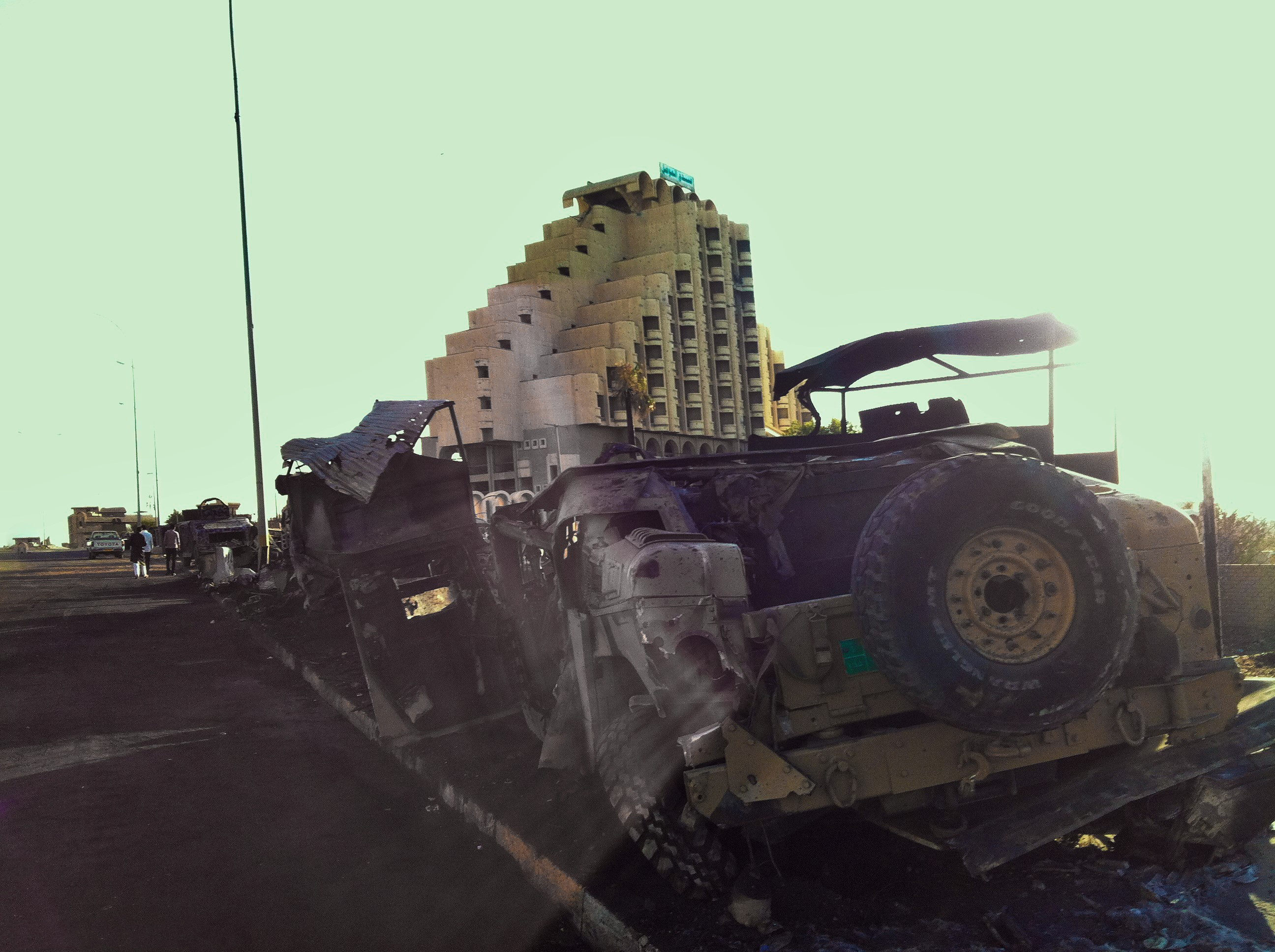
Fall of Mosul
The fall of Mosul occurred between 4 and 10 June 2014, when Islamic State (IS) insurgents, initially led by Abu Abdulrahman al-Bilawi, captured Mosul from the Iraqi Army, led by Lieutenant General Mahdi Al-Gharrawi.
For other uses, see Battle of Mosul (disambiguation).
On 4 June, the insurgents began their efforts to capture Mosul. The Iraqi army officially had 30,000 soldiers and another 30,000 federal police stationed in the city, facing a 1,500-member attacking force. The Iraqi forces' actual numbers were much lower due to ghost soldiers, severely reducing combat ability.[9] After six days of combat and massive desertions, Iraqi soldiers received orders to retreat. The city of Mosul, including Mosul International Airport and the helicopters located there, all fell under IS's control. An estimated 500,000 civilians fled from the city.
A former commander of the Iraqi ground forces, Ali Ghaidan, accused former Prime Minister Nuri al-Maliki of being the one who issued the order to withdraw from the city of Mosul.[16] Mosul would remain under IS control for a few years. Iraqi forces initiated an offensive to retake the city in 2016; the Battle of Mosul ended in its liberation in July the following year.
Reconstruction campaign[edit]
UNESCO is leading an initiative called "revive the spirit of Mosul", with a budget of US$105.5 million to help rebuild the country. This project was financed by 15 UNESCO partners. The United Arab Emirates is supporting the rehabilitation of the Al Nouri Mosque and the Al-Hadba minaret, Al Saa'a Church and Al Tahera Church (US$38.5 million) and the European Union is supporting the reconstruction of houses and schools in the Old City of Mosul and Basra (US$38.5 million).[40]
According to Audrey Azoulay, Director-General of UNESCO, "Reconstruction will succeed and Iraq will regain its influence only if the human dimension is given priority; education and culture are the key elements. They are forces of unity and reconciliation."[41]
The initiative not only involves rebuilding infrastructure, but also aims to revive disappearing traditional arts and crafts.[42]